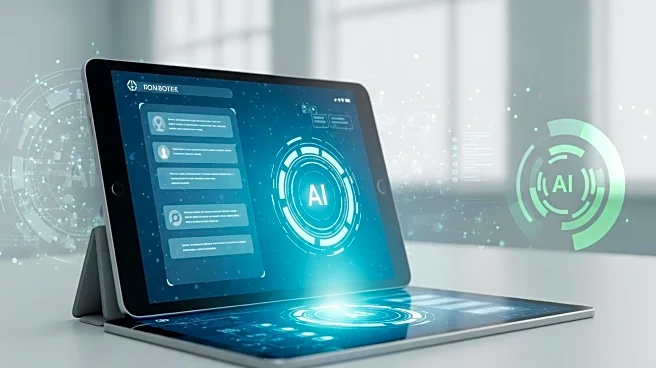What's Happening?
AI chatbots like ChatGPT are increasingly being used by individuals and healthcare professionals for medical advice and diagnosis. A notable case involved a patient in Germany who used ChatGPT to correctly diagnose tularemia after doctors failed to do so. However, there are risks associated with relying on AI for medical advice, as demonstrated by a U.S. patient who suffered from psychosis after following ChatGPT's incorrect suggestion to consume sodium bromide. Despite these risks, AI chatbots are appealing due to their accessibility and conversational nature, especially amid a doctor shortage in the U.S. However, experts caution against using AI for medical purposes without proper expertise, as chatbots can provide inaccurate information.
Why It's Important?
The use of AI chatbots in healthcare highlights the potential for technology to assist in medical diagnosis and patient care, especially in a system strained by doctor shortages and financial pressures. However, the reliance on AI for medical advice poses significant risks, including the potential for misdiagnosis and harmful recommendations. This underscores the need for careful integration of AI into healthcare, ensuring that it complements rather than replaces professional medical advice. The situation also raises questions about data privacy, as chatbots are not HIPAA-compliant, potentially compromising patient information.
What's Next?
As AI tools continue to evolve, their role in healthcare is likely to expand. Healthcare professionals may increasingly use AI for second opinions and to enhance diagnostic accuracy. However, it is crucial for both patients and doctors to communicate openly about the use of AI in medical contexts to ensure safe and effective care. The development of more robust privacy protections and the refinement of AI algorithms to reduce errors will be essential steps in integrating AI into healthcare systems.
Beyond the Headlines
The ethical implications of AI in healthcare are significant, particularly concerning data privacy and the potential for AI to replace human judgment. The balance between leveraging AI's capabilities and maintaining human oversight will be critical in ensuring ethical and effective healthcare delivery.










